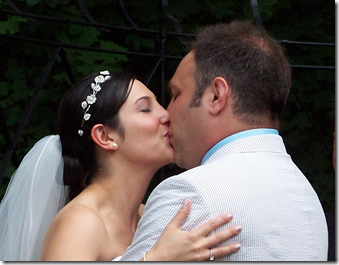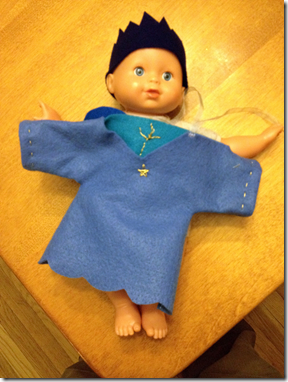Matthew Dicks's Blog, page 435
November 5, 2013
You’re making your insomnia worse. Get out of bed and do something great.
Author Nichole Berneir tweeted the following last week:
One thing that made a tremendous difference in my productivity & happiness a year ago: Instead of fighting insomnia, get up and work.
I found that I’d usually had enough sleep to make it through the next day safely (with coffee), and I get a tremendous amount done 4-6am.
Brilliant.
Sleep is bad enough. Fruitless time spent in bed makes no sense at all.
It turns out that Nichole’s advice has support in the scientific community.
Restricting the amount of time you spend lying in bed may be one of the best weapons against conditioned or so-called “learned” insomnia. This kind of sleeplessness is caused by anxiety that comes from trying too hard to doze off when you can’t.
“The harder a person tries to sleep, the harder it becomes,” says James Findley, Ph.D., clinical director of the behavioral sleep medicine program at the Center for Sleep and Circadian Neurobiology at the University of Pennsylvania’s Perelman School of Medicine.
According to Findley, lying in bed when you’re alert strengthens the association between being in bed and not sleeping. Over time, the bed becomes a cue for being awake.
I don’t suffer from insomnia. On the contrary, I can fall asleep in less than two minutes after my head hits the pillow (and oftentimes much faster than that), and I remain asleep until my alarm goes off around 4:30 or (more frequently) I wake up naturally around that time.
There are a few secrets to my sleep success, in case you’re interested.
But when people turn to me for advice on increasing productivity, losing weight or achieving goals (as they occasionally do), one of their most common excuses for failure is a lack of time in the day to exercise, write, mediate, cook healthier meals or work on whatever goal they are trying to achieve.
I always say the same thing:
Everyone can sleep 30 minutes less. Everyone. If you really want to achieve something great, start by climbing out of bed 30 minutes earlier.
That’s 30 additional minutes in your day to exercise, write, meditate, prepare a healthier meal or do whatever is needed to get closer to your goal.
That’s an additional 3.5 hours per week to do something great.
Think about how powerful that is. You just made your day 30 minutes longer than it was the day before. You’ve given yourself the gift of time.
There is nothing more valuable.
Nichole is right. If you can’t sleep, get out of bed. People who are awake before 6:00 AM accomplish an enormous amount while the rest of the world sleeps.
So sleep 30 minutes less, or like Nichole, stop wasting time in bed, trying to fall asleep, and get to work.
Or you could try a reverse nap. I hear it’s catching on.
November 4, 2013
The only proper reaction to someone who has failed to give you a wedding gift
A piece by Abby Ellin in the Times discusses the reaction of some people when a guest fails to give them a wedding gift.
Ellin writes:
In the hierarchy of social transgressions, the wedding-gift omission, for some, is a sin of the highest order, the cause of relationship breakdowns and unwavering resentment.
I would like to propose a small edit to her paragraph:
In the hierarchy of social transgressions, the wedding-gift omission, for only the most petty, materialistic, and universally disgusting people, is a sin of the highest order, the cause of relationship breakdowns and unwavering resentment.
I was married seven years ago. I have few recollections of who gave me what gift.
More importantly, I have absolutely no recollection of who failed to give us a wedding gift because I am not petty, materialistic and universally disgusting, at least when it comes to gift giving.
I can’t begin to imagine the level of mental stamina, materialism and pettiness required to perseverate over the absence of a wedding gift for years and years.
Honestly, the gifts that I received or didn’t receive were the least important aspect of my wedding. They were the absolute last thing that I thought about before, during or after that day.
My wedding was a day dedicated to my wife. It was a celebration of the love that we share. It was filled with food and dancing and well wishes from the people who we love.
It was perfect.
Honestly, only a petty, materialistic idiot would allow the absence of a crystal vase or a set of hand towels mar the memories of such an important day.
Even worse, I can’t believe that Ellin managed to find people willing to admit to this level of pettiness for her story. But she did.
Lisa Kaas Boyle, an environmental lawyer in Los Angeles, knows exactly who gave her what for her February 1994 wedding and is still upset about the absence of a wedding gift from some of her guests. Nineteen years later, she’s still holding a grudge.
“How could those miserly moguls have forgotten us?’ she asks.
I ask you:
Who is more miserly? The person who fails to deliver a wedding gift or the person who remains embittered about the material loss nineteen years later?
I find the person who remains bitter over the absence of the gift far more disgusting than the person who failed to deliver the gift.
Jodi R. R. Smith, an etiquette expert and consultant for the wedding industry, attempts to explain away this level of ongoing embitterment:
“Gifts are symbols of the relationship. It’s hurtful if this is someone I really cared about, who I thought was a great friend, who made the cut to come to my wedding, and she doesn’t do the right thing. For them to be so blasé about their relationship with me makes me think that maybe they’re not as good a friend as I thought.”
Gifts are symbols of a relationship?
Perhaps in some snobbish, materialistic circle of friends, this might be true, but certainly not in all.
My best friend for more than 25 years and I have never exchanged a single gift. In fact, of my top 10 friends (and maybe my top 20), I can’t remember exchanging a single gift with any one of them.
Not a single one.
While this is admittedly uncommon, it doesn’t mean that our relationships are devalued in any way, nor does it mean that they lack any meaningful symbols.
There are much better symbols of relationships than gifts:
Time spent together. Memories of these important moments. Cherished photographs. A well times note or email. Late night conversations over the phone. Important advice given at just the right moment. Assistance in a time of need.
All of these seem a hell of a lot better to me than toasters and blenders.
Ellin also managed to find some more rationale minds for her piece, including executive coach Karen Elizaga, who said, “It’s a crime to let something material get in the way of the history of the friendship.”
Maybe not a crime, but one of the greatest acts of stupidity and selfishness that I can imagine.
Peggy Post, who writes a wedding etiquette column for The New York Times, agrees. “It’s a custom to give a gift if you attend the wedding, but I’m not sure I like the words ‘have to.’ The short answer is for couples to take the high road, not to get upset and graciously let the matter drop.”
It seems to me that a decent person wouldn’t get too upset in the first place, since we’re talking about things. Stuff. Material objects. Kitchen appliances and decorative ceramic.
We’re talking about attaching negative memories to your wedding day and damaging a friendship in the process for the sake of a place setting, a decorative bowl or a juicer.
Not the stuff of a real friendship.
But Post is right. If you’re upset over the absence of a wedding gift, find the grace required to forgive and most importantly, forget. Don’t let this petty nonsense become part of your wedding narrative.
One more thing that I would like to add (and I think Peggy Post and most others would agree):
As disgusting and uncouth as you think it may be to forget to give a wedding gift, it is far more disgusting and uncouth to speak about the absence of the gift to friends and family, especially if you mention the perpetrators by name.
You just finished marrying someone, and that someone also failed to receive the same gift. If you need to complain to someone, make it that someone. That’s what spouses are for. Don’t begin the round of phone calls to parents, siblings and close friends, lamenting the absence of the gift and wondering allowed how so-and-so could ever do such a thing to you.
I promise you that every time you make such a call or engage in such a conversation, the people around you think of you as a little more petty, a little more materialistic, and a little ore disgusting than the person who failed to give you a gift in the first place.
I promise.
November 3, 2013
Children: Ready-made victims for your cruelest pranks
Three years ago, I wrote a post about a cruel prank that I wanted to play on my children someday involving a Christmas present and a lesson about remembering the value of what they receive on a daily basis.
I was criticized for the idea quite a bit.
I was also told that once I had a child, my views would change dramatically.
It’s true. My views have changed, but only slightly.
My plan was for my children to find an enormous box under the Christmas tree on Christmas morning, wrapped with an enormous bow, and addressed to all of the children.
I would tell the kids that this is the best present that they will ever receive, but that they must wait until all the other gifts are unwrapped before they open it. As they begin ripping through the other gifts, I would seek to build their anticipation over the enormous gift, referencing it constantly and encouraging them to hurry up.
Finally, the time will come to open the enormous box. I would ask them to wait one more moment while I ensure that I was ready to record the big moment. Ready at last, I would tell them to proceed and would record the tearing of wrapping paper and the struggle with the bow until the package was finally, blissfully open.
Inside the kids would find a slip of paper that read:
Food, shelter, and clothing. The best gifts of all, and given all year round.
Three years later, with two kids running around the house, my plans have altered only slightly.
There will still be a present under the tree, but it won’t be the largest or most impressive.
It will still be addressed to both kids, but I will not attempt to hype the gift in any way.
The note inside will remain the same.
Slightly less cruel than my original plan, but amusing nonetheless.
And hopefully less offensive to the hordes of readers who despised the initial iteration of my plan.
Emergency medical care apparently sucked in 1988
I was recently speaking to a former classmate, and she told me that her most vivid recollection of me was the time I extracted a piece of windshield glass from my forehead in a peer education class, a feat I later reproduced in geometry class and on a bus during a trip to a marching band competition. After high school, I also extracted glass from my forehead on several occasions, including once on vacation in New Hampshire when one of my friends did not believe that there was glass in my forehead.
I tore into my forehead and pulled out a piece out of spite.
The glass was the result of a car accident that sent my head crashing into the windshield of my Datsun B-210. Amongst the many lasting effects of the accident was a forehead full of glass. All but one piece has since been removed.

If there is a doctor in the house, please tell me how I was permitted to walk around for years after my accident with shards of glass in my forehead.
Is this normal?
Was the plan for these corn kernel-sized pieces of glass to eventually migrate to the surface of my forehead and break through?
Did the doctors forget to inform me of the plan?
Did they think that restarting my heart and respiration and repairing my knees, chest, mouth and chin was enough work for one day?
What kind of medical care was available in 1988?
In fact, they also did a lousy job with my left knee, which had become impaled on the emergency brake post . Until I had a second surgery ten years after the accident to correct the problem, my knee would occasionally bleed like a sieve for no explicable reason.
Seriously, what kind of medical care was being doled out at Milford Hospital in the winter of 1988?
November 2, 2013
Unacceptable platitude #6: “I never said I was perfect.”
“I never said I was perfect.”
Criticizing someone does not imply that you are questioning their level of perfection. Discard this platitude like the piece of trash it is.
Besides, you probably never assumed that they were perfect. Especially someone stupid enough to say something like “”I never said I was perfect.”
Point this out to them, too.
The perfect encapsulation of my teaching philosophy
Best moment of the week for me was when the mother of a former student informed me that her daughter had gotten herself into trouble in math class.
When caught daydreaming in the middle of a lesson, her teacher asked what she was thinking about.
She replied, “My fifth grade teacher. He was mean, too. But in a fun way.”
November 1, 2013
Pumpkins
Most quoted man
Look! The kind of man you might find in one of my novels!
I love this guy.
Escaping poverty, homelessness and hopelessness was incredibly hard for me. Now 80% of Americans must do the same.
There was a time in my life when I was homeless. I lived in my car and was unemployed. While this was primarily the result of being arrested and tired for a crime I did not commit, I was also living without a safety net.
No family. No savings. No education beyond high school.
Had a family of Jehovah Witnesses not taken me in when I was in trouble, I would’ve spent a much longer period of time without a roof over my head, and it would’ve taken me even longer to find a job.
After being out of work for almost three months, I finally landed jobs as a teller at South Shore Bank in Stoughton, Massachusetts and at McDonald’s as the closing manager for a franchise in Brockton.
Ironically, both South Shore Bank and McDonald’s would later testify against me at my trial while I was still employed by both companies.
For a period of about two years, I was impoverished, surviving only thanks to the kindness of friends. Even before that, I had been living below the poverty level for most of my life.
I mention this because recent data indicates that four out of five US adults struggle with joblessness, near poverty or reliance on welfare for at least parts of their lives.
That number seems exceedingly high to me, but it may be reflective of the place I live and the people I know. In my circle of friends and associates, my story of homelessness, unemployment and poverty seems like an unusual one. I know very few people who were ever in a position even close to my own, and yet according to the data, 80% of Americans experience this kind of hardship at some point in their lives.
The only reason I am not still not living near the poverty line or worse is because I managed to get myself to college at the age of 24.
This was not easy.
I began my college career with three years at Manchester Community College, followed by three years at Trinity College and St. Joseph’s University concurrently, where I earned an Bachelor’s in English and a teaching certificate. In order to support myself and a family at the time, I managed a McDonald’s restaurant in Hartford, CT fulltime, worked in Trinity’s writing center part-time and launched my DJ business.
I was also active in student government, wrote for the school newspaper and was President of the Honor Society.
I still don’t know how I managed to do all this. Even though I am the one who managed to slog through those six years, I can’t imagine how I found the time and energy to accomplish all that I did. I suspect that the memory of the months spent living in my car, unsure about where my next meal would come from, constantly afraid that I would be robbed or worse when I went to sleep in the backseat, played an important role.
I often think that the poverty I experienced when I was young, both as a child and as a young man, has helped shape the man I have become. If given the chance, I wouldn’t change a thing.
My hardship has made me who I am.
But what was good for me is not good for all. If the data is correct, four out of five Americans experience circumstances similar to my own. While I’d like to think that they could also pull themselves up by the bootstraps, this simply isn’t the case.
Some are single mothers with childcare demands. Some live in places where education is not nearly as assessable. Some are battling health concerns and disabilities. Some are less equipped for college success. Some are not fortunate enough to find a family willing to take them in at their most desperate moment.
The economy is also very different today than it was in the mid-late 1990s. Jobs are harder to come by. The talent pool is more competitive. Low-skilled jobs are disappearing rapidly.
In a way, I’ve always felt relieved that it was me who had to live those difficult years, because I always knew that I could find a way to make things work.
Better me than someone else.
But to think that 80% of Americans will be forced to do the same is terrifying to me. My hope is that they have safety nets that I did not possess. Maybe they have access to social services that I did not. Perhaps they will be luckier than I was.
Still, 80% is an enormous number. A terrifying number. Knowing how difficult it is to escape poverty, I fear for these people.
October 31, 2013
Happy Halloween!
My two kids, ready for trick-or-treating tonight!
Clara is a fairy princess, and Charlie is Max from Where the Wild Things Are, in a costume that my wife made specifically for him.
Someday I will actually read that book and appreciate her handiwork even more.
But she wasn’t finished when Charlie’s costume was complete. Clara said that her favorite baby doll, Katie, also needed a costume for Halloween, so Elysha went back to work and produced this for Katie to wear tonight.
My children are a couple of lucky kids. When I was a boy, my most common costume was a hobo or a baseball player, because I had clothing resembling that of a hobo and a Little League uniform in my closet already.
















